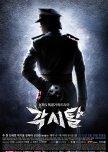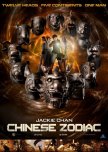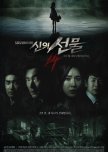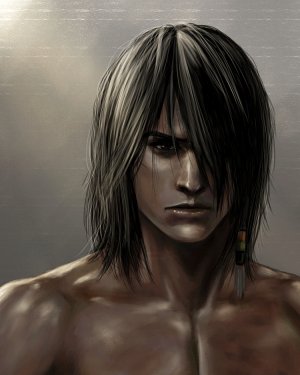
Drama Special Series Season 1: White Christmas
16 personnes ont trouvé cette critique utile
For over half of the episodes I tried and during the five episodes I've gone through, not once did I feel entertained. But then again, maybe it isn't entirely the drama's fault ; it had been sold to me as a particular genre, and therefore I was waiting to see a story fitting the said genre ; except it had nothing to do with it. Then the question is, would I have enjoyed the show if it had been sold properly to me ? Maybe....but probably not. Whether or not this was sold to me properly shouldn't have been an obstacle to feel entertained, but I wasn't. The question now is why.
Let's start with the plot. For the majority of the seen episodes nothing mattering occurred; if the scenarist's inspiration was Gustave Flaubert, a French writer bragging how he can write about "nothing", then he succeeded, but missing the writing style. One would say it is used to build up the suspense or to get to know the characters better ; I felt none of the two. I simply did not care ; at fault isn't really the story, in itself, it is neither bad nor good, just boring ; the real issue, is the acting performance of the cast.
The cast looks bored, and inevitably, when an actor isn't entertained by his own job, the interest in the performed character is immediately hindered and in this case, it includes close to the entire cast. So if they are bored, why should I, on the opposite, feel entertained ? I am after all the receptor. As for the characters themselves, they are generic and don't leave much of an impression, except one or two. Well, on the other side, it is also the role of the director to guide his/her actors' properly so they can perform at their best and how he/she wants the characters to be. So the actors, even if bored or not, aren't entirely at fault, the director shares the blame.
A second issue, with the story, is linked to the situation they are in : teenagers cut from the rest of the world in a building with one of them being a murderer ; and most of the time, I have absolutly no sense of danger ; the characters are way too calm and composed and only start to react in a more realistic way in episode 5 (if the question is why I didn't continue when it was finally starting to have a ray of entertainement is that I simply forgot about it and couldn't care less anymore) ; even the simulacre of investigation, or the revelation of some pasts and some shades of mystery being solved aren't enough for it to build suspense or entertainment.
The music is very often redundant and the same song used too often per episode, but apart from that, there's no real formal issue with the production ; and then, considering some musics they use, they certainly lost a good amount of money simply to pay rights. Don't expect many asian songs in this, there's a fair amount of older occidental songs. Like, dislike, but do not forget they'll be quite repetitive and sometimes overused.
The rewatch value....well, obviously....when one drops it, it can only be quite low.
Overall....as I said...the show isn't bad, just uninteresting and generic. If you've never seen this kind of story, you might appreciate it, because naturally it'll appear fresh and new like every first time, but then I hope you'll encounter many more stories of this genre in the future, because if it isn't bad, it isn't good either and there's a lot of good fictions with similar stories waiting out there.
Cet avis était-il utile?

As a person used to fictions from various horizons, I’m not limited to K-dramas and maybe that’s why I cannot help but have issues with most of them. Because, comparing this medium with the rest of the world, a lot of K-dramas have filming issues (not knowing how to use flashbacks, camera angles, not using soundtracks at the most appropriate time), poor acting (absurdly over the top that makes it hard to take it seriously) and writing issues (poorly done mood ruptures, forced dialogues, convenient situations, limited variations in their tropes). In that aspect, k-dramas are a sort of niche medium, where many (hardcore) fans will find their way of doing fictions as the expected standards and consider the one not corresponding to it wrong ; while the rest of the world will give it an awkward gaze.
So in any aspect, if you are someone limited to k-dramas, you’ll find this bad, at best decent ; if you are someone with a broader vision, you’ll perceive this as it is.
I’ll be clear, this k-drama is the best one I saw so far when it comes to formal qualities. And…….while it uses all the codes of k-dramas….it is not a k-drama, in the sense it’s a coproduction between three countries : China, US and South Korea. Which is….sad, but, from an exterior point of view, I do hope South Korea will learn from this, even if I doubt it and I’m certain most k-dramas fans wouldn’t want this medium to lose its “specificities”.
But anyway, time to get to the points :
Writing :
Well, what do we have then ? A parody. A good parody, and it isn’t as easy to do as one would expect. While it isn’t the subtle type of parody – which….would be impossible considering the concept of the drama – it doesn’t fall in the “smeared in your face” sketches with close to no real stories.
The parody aspect makes sense because of the universe it wanted to create ; a universe governed by the most common tropes you can find in dramas, most of the time for comedy purposes, sometimes maybe a bit forced, though it should be relativized considering parodies aren’t ruled the same way as classical comedies. But anyway, this simple concept alone is something I rarely see when it comes to parodies, so it has to be mentioned.
So, here we are, following a k-drama fan falling right into “Dramaworld” to save a k-drama ! And Dramaworld can’t be more “dramatized” than it is. And just for that, I kudo the writers, they obviously knew very well how k-dramas functioned and were able to recreate one while aborting most common issues. The writing isn’t perfect, I admit sometimes I pondered where the parody stopped and where it was just a formal issue, but it was trivial most of the time, except, maybe, in the last episode which is probably the least well written from the entire show. And if you watched the show, you probably know what I’m referring to.
On an “intellectual” approach, what was the most interesting was the double levelled story-telling : Claire’s “Dramaworld”, of course, but also the “Dramaworld” WE are/were watching, which was as dependant of the rules as Claire’s, and might have ruined the tension for some as it makes the story pretty self-explanatory. Now, yes, it wasn’t pushed the furthest, I wish it had gone farther on that aspect, however many episodes of this barely 10 episodes long show demonstrated it was fully aware of that and they at least did it justice.
Lastly, I would point out that with my limited knowledge concerning k-dramas, I could see a bunch of references to other dramas, so I’m sure that if you can appreciate subtle references in fictions, you’ll like this aspect.
Characters & Acting :
As one could expect, for the most part, they are the embodiment of stereotypes and clichés and shouldn’t be expected to be anything else to begin with (after all….it is a parody). It is especially true for most of the cast, which has close to no development at all. It could be annoying for some, so, if you aren’t used to functional characters or parodies, you might better avoid this.
There are three characters, however, who are more than “just” stereotypes, while never really leaving these aspects :
1. Seth : the trickster archetype ; as one would expect from a trickster, he possesses several faces. While the drama mainly focuses on two, they aren’t the only one. But I shall say that his writing lacks nuances and coherence which turns out problematic for the last episode. If anything, he’s the biggest black point of the show. Still, his double levelled situation makes him interesting. (the fully k-dramatized)
2. Joon Park : our dear main lead, which is of course arrogant and proud and….you know…basically, the “male”, and yet…as one know, or should know, a stereotype can be well written, and it’s his case. The show, with its limited duration, takes time to layer him in a combination of k-dramatization and the “rest” (aka bad for many hardcore k-dramas fans, good one for “ignorants” like me). (the semi-dramatized, semi-real one)
3. Claire : our stereotyped, double-levelled, real person ; which I suppose makes her the most “problematic” chara for some people. She isn’t supposed to be k-dramatized, and while it is very interesting to see none-dramatized charas interact with k-dramatized one, this difference in writing and acting between characters might be disturbing for some, but I’ll focus on Claire first.
So, yes, Claire, she’s the embodiment of the hard-core fans….does it mean each individual will see herself in her ? No…of course not, she IS a stereotype. However, despite her “stereotypization”, like our main lead, the writers didn’t forget to layer her. Now, yes, I said “real person”, but by that I don’t mean she’s “real”, she is, after all, a character, however, her characterization is more normalized than her Korean counterparts.
To come back with what I was hinting earlier, this show isn’t “just” k-drama. While it is the biggest component, it also features a second type of writing, a more westernized one, which was a very interesting watch for me. Needless to say it is rare to see several writing types in a single show even more between characters. Add to that you have three levels of it - even if for two of them they are just manifested through two characters - and I think this uncommon fiction will be a block for most watchers. (you reject what you don’t understand logic)
The same can be said when it comes to acting, so it isn’t “just” about the writing aspect (I praise the director for being able to direct the charas, mustn’t have been easy considering how unusual this is). And it was as interesting to watch as the writing, but there too…if you are a hard-core k-drama fan, you might have issues….because, while it is the Korean acting….it is “undertoned” compared to the usual one, aka don’t expect the absurdly over the top one.
Most of the cast just do their job, nothing extraordinary, if I had to pin point some, it’d be Joon Park who had to express two acting types depending of the situations (mainly when he switched languages) and Claire who’s able to be common grounded while staying characterized.
Overall :
I suppose I could speak of the soundtrack or filming, but the answers are already implied in the first paragraphs : it doesn’t follow the same issues as most k-dramas, though there’s nothing ground-breaking either.
All in all, I’d advice this show for people with a little knowledge in narratology, it’ll be fun ; if not, not being restricted to k-dramas could also work to the appreciation of the show ; if you ARE limited to it, though….as ironical as it is….you might want to stay away from it as you’ll probably not appreciate it or really in a limited way.
I’m aware all this review my sound bitchy, arrogant or elitist (and some terms or aspect might even be unknown for some)….but I really have no other way to express it more appropriately, so it shall be like that….
Cet avis était-il utile?

PS : I posted a -->document of 21 pages<-- taking into account the issues (bad writing, bad acting, bad pacing, bad technic) of roughly 10 episodes ; just saying as I am aware of the drama's popularity. So if you are curious, check it out and disagree if you want, we'll discuss it then. Now, yes, it is nitpicking sometimes and everything doesn't have to be taken too seriously, but it doesn't change the real issues within.
Before anything :
The moment I saw the image on MDL, I fell in love with it. I wanted to watch it : Zorro ; that was the only thing running through me and I was excited to start it. (not to mention it is typically the type of things I enjoy) The two first episodes confirmed it and despite the presence of a few issues, I was entertained enough to close my eyes on them. Only two episodes...and then everything started to crumble. From episode 3 to 5, the drama lost itself in the turmoil of delievering fanservice and was unable to stand up again, only falling deeper and deeper. And in case some wonder, no, focusing on fanservice is not an excuse for all what's wrong within the show. As I cannot exactly spoil, I won't recap them precisely here (I have a document anyway). But I will "explore" some aspects on this review.
Story :
So what do we have ? A Zorro-like concept : a man with a mask, the icon of the (future) rebellion ; a lot of fictions of this genre approach that through a manicheist perspective and aren't exactly always accurate in term of historical facts. Bridal Mask is not an exception to that ; so if you want to know more about the annexion of Korea avoid it, it would bring you as much as reading heroic fantasy to try to understand Middle Age better (I feel it is necessary to point it out because I've come across a few people actually thinking they'd know more thanks to this drama). But let's come back to the manicheism. Like everything, it is the way you use something that determines if something is good or bad/well done or not. In BM, if in the first episodes it was correctly pulled, it quickly seems as though the scenarist has run out of ideas or has forgotten as how to us it or show it : it feels forced, random and each time it is done - several time per episode - an inch of credibility is lost. Unsurprisingly, it quickly becomes impossible to take the "villains" seriously, or giving them credits.
This, the unability to use any tools properly, the randomness, the feeling everything is forced and dragged, every aspect of the story suffers from it : turning in circles, repetitivity, incoherences, inconsistences, plot holes, way too many sub-plots open and abandonned (sometimes even 5 minutes afterward, leading to new incoherences), painful conviniences and more. I won't start making a list, the document you can find on the page of the drama is there anyway. If you are curious and aren't too sensitive to nitpicking and innocent mockering, you can always give a look at it before continuing the review.
I'll be frank, past the two first episodes, nothing is to be saved in the story. But instead of only counting them, I'll try to explain why it has come to that : the system of dramas. Most dramas are shooted "live" ; meaning : they shoot an episode a few days before it is broadcasted and only has a few days again to shoot the next one, and so on. One of the main reason of it is simple : the reception. The reception of a drama, episode per episode, is extremly important and will lead to readjustment depending of the complaints/liking of the fans. A lot of dramas have a heavy place for fanservice, it isn't exactly an issue in itself, the issue is when a fiction is led solely by fans. Most fans want to be serviced, the rest is of little mattering ; therefore following fans is the best way to ruin your story : the coherence and the consistence. Most dramas suffer from the importance of audience and fanservice, but are able to avoid falling too much into it ; and then you have cases like Bridal Mask, dramas which don't "suffer" from them, but are simply ruined by them. If you ever came across a fiction where you follow the life of a writer or scenarist, the chance is high there will be an episode dedicated to "following fans desires/advice" and the inevitable result : this type of episode are a message to fans, but also a warning to future writers/scenarists. That warning, that message, BM disregarded it, and fell into the inevitable pit.
But then, it'd be too easy to only blame the 'fanservice and audience at any cost' temptation ; BM has a second issue : its lenght. 28 episodes...one hour each....28 hours...it is a lot and you better have a story able to fill in this amount of time. A lot of dramas suffer from their lenght too, but BM, once more, is a perfect example of the trouble it represents and is part of its ruins. I said it before, but the story is very repetitive. You might point out that the "episodic" structure instead of an "arc" one would explain and justify it, but, like for manicheism, there's a way to do it properly. The episodic structure requires the ability to pull each time a new variante fo the same structure, so that even if it is to some extent repetitive, it is at the same time enough "new" that it remains interesting and entertaining. BM doesn't seem to know how to use it, the "episodic" structure use the exact same situations with the exact same characters with the exact same results for over half of the episodes ; there's no variante, and apart from giving away a feeling of repetitivty and dragging the drama doesn't achieve much. Ten episodes maximum would have been more than enough to tell everything with a calm pace, giving you the opportunity to "lose" some time on less important matters or explore sub-themes. 7, if you want a well paced story (I say that in regard of the content of BM). The rest is nothing more than an inconsistent dog running all over the place to come home by the end of the day and doing the exact same running again the day after.
Another issue from this live system : it has naturally an impact on the writing itself : there are two possibilities : you either have a build story beforehand or you have a very thin red line and adjust with the weeks ; in both cases, you suffer from audience and fanservice ; in the second case, the chance is high you'll suffer even more from it. Writing a script week by week isn't an easy task, if you have nothing to base yourself on (a build story) how do you want to produce something consistent or coherent ? In any case, such a rushed system cannot develop the potential of any fiction to its best, it can only harm it.
Lastly, as strange as it may sound to some of you, the budget had an impact on the story. The numbers of locations can be counted on your fingers. If they could have, they'd have certainly had more and if they had more, those 28 episodes would have felt less repetitive and the scenarist would have had more opportunities to vary the story. Certainly, if the drama had been less long, that issue would have also been reduced (everything is tied together in a way or another). With such a shortage of locations, their overuse on such a long run is inevitable and the writer can only work with what he/she has at his/her disposal ; however, there remains some locations which could have been used less in favor of others ; for example, the torture chamber in the police station, which turns closer to a running gag than any potential seriousness it should have. This clear limitation on budget only increases the fact having less episodes would have improved the fiction greatly.
Esthetic/Soundtrack :
If there's one place where budget was well put, though, is the esthetic and the soundtrack.
Most dramas don't put much money in their soundtrack, BM, however, has a worked on and varied (compared to most dramas) soundtrack ; a real pleasure to the ears and several memorable themes. However, I cannot help but wonder how much impact on the quality of the story there would have been if they had put less money into that aspect to use it to increase the locations (and therefore improve the story).
The same can be said about the esthetic, the choice of costumes, the decoration, all those kind of details are a nice sight, despite the historical inaccuracies, and yet, giving less money for it and more for locations, once more the drama would have generally benefited from it.
Because of that, those two positive points contain that bittersweet taste of "only if". A budget is always limited ; knowing how to use it well is important and it is more important to have a minimum of quality in each era than to boost some and ignore more mattering one which will impact the general quality negatively.
As an adding, if there's no real shot issues, the montage is very often painful to watch with its flashbacks and transitions ; like everything, there are ways to use them. For the flashbacks, they are used as fillers more than to help the watcher (when they don't bring up incoherences) – another proof there’s way too many episodes for what the story has to offer - and for the transitions, it is often purely a misuse that requires going back to cinema school as it seems to forget its basics.
Characters/Actors :
Like most things, in the two first episodes, everything is fine and clear, there was no issue whatsoever but then episodes 3-5 arrive and throw in a huge mess and the characters don’t survive from it to. Between the sudden and unexplained personality switch from some characters, you have others which you can perceive what was trying to be done with them (mainly the two main males of the cast), but fail miserably at it : once again, when a character changes/evolves naturally, due to what has occurred around him/her or to him/her, there are ways to do it (as annoying it may sound) ; in this case they are off-screen, if you want to be nice, or purely none existent, if you are less nice, leading to incoherent and inconsistence characters (once again, proof of that in the document). And even by being nice, the inconsistency remains in almost every conversation, switching from traits to another without as close as a reason other than dragging purposes. It’s also good to notice that charas have “traits”, they are very far to have any type of psychology ; so if you are the type to enjoy your charas to have a minimum of psychology, it’d be better to avoid this, or else be prepared for headache. Which, considering they had 28 episodes, is a shame and inexcusable, they had more than time to develop their main cast properly. For the drama’s credit, the two last episodes try to give Shunji some senses again, to show us there actually was “something”, but far too late to make up the over 20 episodes inconsistency and simply too superficial to even matter in the end.
Thanksfully, in a way, not all characters suffer from inconsistencies, what is saddening, though, is that the only consistent characters are underdeveloped secondary characters.
As for trying to figure out what messed up the characters so much, basically for the same reasons as why the story was messed up ; it is linked, of course, so I won’t repeat what I’ve said already.
For the actors, I do not know if they are good or bad actors, and sorry to say that it doesn’t matter in the slightest ; what matters is their performance in this actual show. It is the same as for the characters : inconsistent characters can only lead to a sloppy performance ; consistent characters is the best way for an actor to actually play well. Luck for some actors being unlucky to play the inconsistent one, there were times they were able to actually act well, Kang To’s crying for example, it isn’t so easy as some think to be convincing ; Shunji is sometimes good at acting crazy….but then….it is, on the opposite, far easier to play as some would think, so I cannot praise him for it. However, I can actually praise the actor for trying harder in the last episodes, but once again, too late to make up for anything. A few consistent characters don’t have the luck to be played by decent actors though ; Katsuyama for example – which explains why he pretty much is part of the decoration (and his erasing from the plot wouldn’t have any impact, ironically as I did enjoy…his look, but I do not let my hormones control myself) – is played by someone I suspect to not even be an actor ; I could have forgiven it as his fighting performance seem real, but as he’s basically never really used in the plot anyway, his presence is quite useless. Well, apart from being a nice sight, but I tend to expect more from a character than to remain a pleasant decoration.
But then again, the current drama system hardly makes it able for its actors to perform at their best : overheavy schedule, lack of time, rushed shooting ; how are they supposed to play properly in those conditions ? And furthermore, how can they when the characters they are supposed to play lack consistency ? This all might annoy you, but too many people are unaware of the growing black point the drama system represent for its fictions, BM just is a perfect embodiment of most of its issue.
Overall :
It is simple, I enjoyed the two first episodes ; I enjoyed writing up everything wrong with the show and I was actually hesitating between 1.5 and 3.5 for the final rating of the show ; but the last 6-8 episodes were a chore and nothing pleasant to them ; not even the nice esthetic and soundtrack were enough. It is neither something I’ll ever rewatch nor something I’d actually recommend. Nothing in the show is able to save it as an average show either. Overall, it is one of those bad fictions that get popular for bad (/no) reasons.
Cet avis était-il utile?

Overall :
Who watches a Jackie Chan movie for the story ? I know I never did. It never flies high and in this particular case, story and filming are an absolute mess ; but Jackie Chan movies remain fun to watch, especially Jackie Chan's fighting and acrobatics...which is the only reason why I would recommend this movie. I won't lie : giving it a 5/10 is too high for the objective quality of the movie, but my subjectivity cannot give it a bad note.
Story :
If you are curious how not to write a story, you might as well watch this movie. It does a huge fuck you to sense and common ground every five minutes and jumps from a thing to another without a valid reason and is way too quick, nothing feels right. Just...watch...and you'll get it... At least I hope so. As for the ending, I was between facepalming and laughing.
Characters :
You cannot really speak of "characters", even "stereotype" would be too much, they are traits. Sure, there's a try to develop relationships between some characters, but it isn't worked on properly for it to be even credible. And I don't even speak about the motivation of some characters or their unvalid change of hearts.
Acting :
It really varies from one to another. Some are really bad, others are ok, none are outstanding.
Music :
It seems Pirates of Carribean's OST is loved, because some soundtracks certainly sounds like remixes.
Filming :
Oh my goodness, the transitions... I think it's the first time I've seen such a bad use of transitions in my entire life. XD It's so constant to the point it's hilarious how you pass from a moment to another. XD It feels very amateurish. If you want to know how not to do transitions, this movie is a very good example.
As for the scenery...it is ok, most of the time, until you arrive in the jungle...which is the most ridiculous part of the entire movie, not only due to the stage set but also what happens there in general. I'm still laughing thinking about it. I assume there was a huge lack of money, or at least it's the only justification I can give them.
Rewatch Value :
Yeah, it's bad...really bad...but I know I would laugh if I would watch it again. And I would still appreciate Jackie Chan's "martial art". Just for that I could rewatch it. You can call this movie a "nanar" (aka "so bad it's good" or rather, turning funny by how bad it is done).
Cet avis était-il utile?

How long this took me I cannot say. A month ? It must be around that. The reason isn't the writing or the acting, but simply because it isn't my thing. I cared, at first ; but through the episodes, I cared less and less, all I wanted was to finish it.
Story :
As I said, it is better written than most dramas I've experienced, which, considering the average level isn't too hard. Unlike most dramas, it doesn't lose itself in endless fanservice, it doesn't go in every directions to the point some episodes feel pointless. It knows where it goes, what is its points and try developing and going for it while avoiding digressions as much as possible. Despite that, some doors are opened and lead to nothing, typical mistake from dramas, but in comparison, it isn't as common and has to be therefore praised. It also has some stupid moments, especially the ending, which is incoherent with the first episode and seems to be a twist for the sake of a twist ; it is sad, but doesn't stop that, overall, it is a better piece of writing than the average drama.
Characters :
I don't have much to say, you have the mentally handicaped character, because drama trope ! (well, doesn't stop it to work on me XD) You cannot speak of real chara development, especially the sidekicks, as for the main characters... Well, they are a bit more complex than your average drama characters but aren't groundbreaking. I do have some issues with some bad mentalities some chara vehiculate (we are in 2015, please, evolve) and the treatment of the husband, which, thanksfully isn't limited to the cheater stereotype, that I have to praise as well, it brings up the high issues of justice in terms of divorce and child care...by copying what is so wrong with it is quite annoying and frustrating ; once again, we are in 2015, learn justice and equality.
Acting & Soundtrack :
They do their job properly. Really, I have nothing to say about it in particular.
Filming :
Once again, better than the average drama By, for example, knowing how transitions work, how they are used and when. It sounds like some basic thing, but it is to point out most dramas do not seem to know said basic.
Rewatch value :
As I didn't like it, I won't rewatch it. But if you're the type not getting how transitions work, you can always rewatch it and pay attention to how they are done.
Overall :
It's a shame that what is better than average is something that I dislike on personal taste. I do hope, though, that it fits the tastes of others. If you are into fanservice, exaggerated melodrama or other stuff like that, it is better you skip it, you'll be utterly disappointed.
Cet avis était-il utile?












